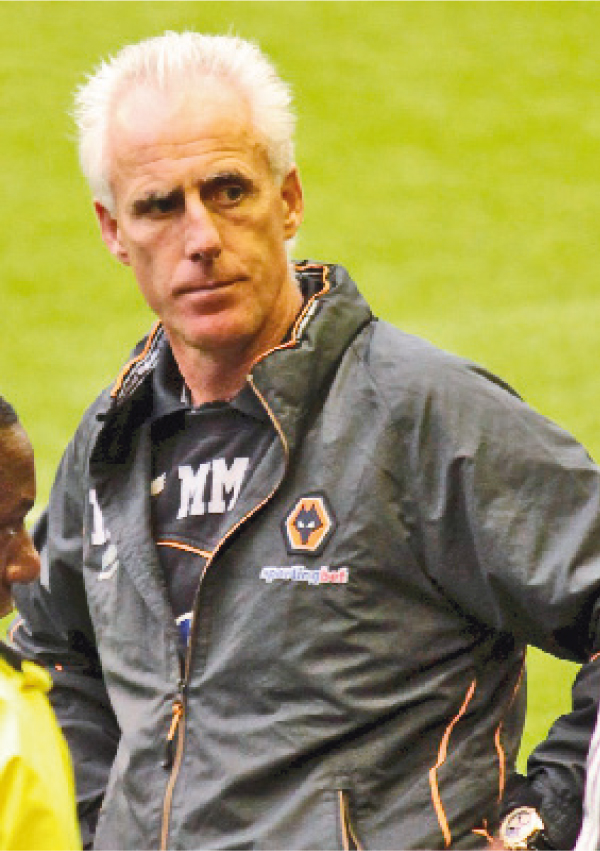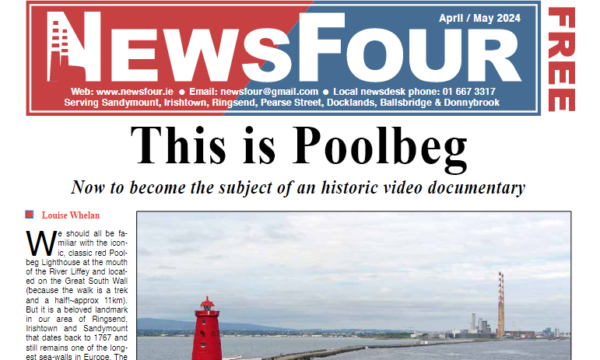
Mick McCarthy. Photo courtesy of Wiki Commons
By David Prendeville
Ireland concluded their disastrous Nations League campaign and 2018 with a horrendously drab 0-0 draw against Denmark in Aarhus. Ireland’s relegation to pot C of the next Nations League and their drop to third seed for the upcoming European Championship qualifiers had already been confirmed at that point.
It led to Martin O’Neill’s departure later on in the week. The manager deserved to take some flak, in particular, for what felt like a staleness around the Ireland team. However, there are other issues beyond the management that have dogged their recent endeavours.
The Denmark game followed an equally dull 0-0 against Northern Ireland in a friendly in the Aviva. There is something inherently Beckettian about watching the Irish team at the moment. The way they have looked recently, it’s hard to imagine them ever scoring a goal again. The constant long balls to nobody remind us of the futility of our actions and the ultimate meaninglessness of life.
They haven’t scored in four games and their only goal in the Nations League came in the 4-1 loss in Wales. While the management has understandably paid the price for such damning statistics, there is also, unfortunately, an alarming dearth of quality in the team at the moment.
Just look at the strikers currently available for selection. People still thought the earth was flat the last time Shane Long scored for either club or country, Scott Hogan is a perennial bench-warmer for Championship Aston Villa while Callum Robinson is toiling towards the bottom of the Championship with Preston. Robinson has done okay with eight goals this season but he’s hardly plying his trade at a level that will set the pulses racing for Ireland.
A bright prospect we may have is Michael Obafemi. The pacey, eighteen year old striker has begun to make appearances off the bench for Premier League Southampton this season. Many feared a similar situation with Obafemi as to the recent one with Declan Rice. While born in Dublin, the striker’s parents are Nigerian and he has lived in England since he was four years old, meaning he was also eligible for both those countries.
One positive thing that may be remembered from our bleak Nations League winter is that O’Neill gave the youngster his competitive debut against Denmark, coming on as a substitute for the final ten minutes. This means that he cannot now switch allegiances in the future. This came after Obafemi’s announcement earlier on in the week that he intended to play for Ireland and was not considering other options.
Ireland now goes into March’s Euro 2020 qualifiers with much to prove. It’s not just the striker situation that’s bleak. Realistically, how much top quality or even above average players do Ireland have? Captain Seamus Coleman is an excellent right-back. Matt Doherty has been doing brilliantly for Wolves. The centre-back Duffy is a solid performer for Brighton. It’s a boost that Robbie Brady has returned to fitness recently.
Maybe James McCarthy can do a decent job in midfield when he returns from that awful leg-break sustained last season. It’s clear, however, that the talent pool is very small.
Ireland isn’t exactly falling over youth prospects at the moment either. Obafemi, as noted, has a lot of promise. Lee O’Connor, at Manchester United, was also drafted into the latest squad and is a highly rated youth player. Liverpool goalkeeper Caoimhin Kelleher is equally highly-rated but also yet to make a competitive appearance for his club side. Ireland U21’s captain Josh Cullen, on loan from West Ham to Charlton, is doing well at the lower level. But we ought to and need to have more talent coming through the ranks.
In time I feel the Martin O’Neill/Roy Keane era will be looked back upon as being relatively successful. They did very well to get Ireland into the European Championships in 2016. Also, let’s not forget, Ireland actually did exceptionally well to finish second in the group they were in, to earn a play-off place for the World Cup in Russia.
Sure, it ended in that shambolic demolition by Denmark that fateful night in the Aviva, but the achievement up to that point shouldn’t be ignored. However, sometimes in football, a change is needed in order to galvanise and reinvigorate the players. However, a return to Mick McCarthy puts paid to such fool-hardy notions of fresh new beginnings.
There wasn’t an extensive list of desirable candidates who could have taken the role. Sam Allardyce would likely have made the football even more eye-bleeding to endure, even if it would’ve probably been relatively effective. Steve Bruce and Harry Redknapp were both desperately underwhelming choices. Bruce because he is management mediocrity made flesh, Redknapp because, while relatively successful in the past, he entered a level of self-parody Freddy Krueger would blush at long, long ago. You can currently catch him on I’m a Celebrity Get Me Out of Here.
However, amongst all this dross, was the relative promise of Stephen Kenny, a manager who would at least have symbolised change. In what is an utterly bizarre move, Kenny has been appointed as Under-21 manager for now and will replace McCarthy in 2020.
It’s a ham-fisted way of paying lip service to planning for the future. If the FAI believe Kenny is the right man for the job long-term, they should show faith in him and appoint him now. Instead, for the next two years, it’s back to the man first appointed over twenty years ago and who managed to get Ireland to the sum total of one major final with one of the most talented generations we’ve ever had.
That’s even before we come to how the FAI would deal with a head-scratching development such as Kenny being poor with the Under-21s? Or Mick McCarthy somehow doing well in his post? Or a distinguished, top-class managerial candidate, such as Chris Hughton, being available in two years?
Whatever my reservations about McCarthy, he is not the villain here and nor will it be his fault when we’re once again in a state of existential despair, watching Shane Duffy lump the ball into a never-ending abyss in a 0-0 draw with Albania.
The issues surrounding the Irish team run much deeper than whoever is managing the team. In reality, a shake-up of the FAI is what will be needed for long-term change. It’s hard to shake the notion that when Ireland had a good team (circa 2002), the powers that be rested on their laurels, enjoyed patting each other on the back and failed to adequately invest in youth and plan for the future.
The decline from the 90s/early 2000s era Ireland to now is both desperately sorrowful and utterly predictable. Such an interminable decline is the responsibility of those at the very top. The way forward would be an investment in youth, not a misguided return to the past.



